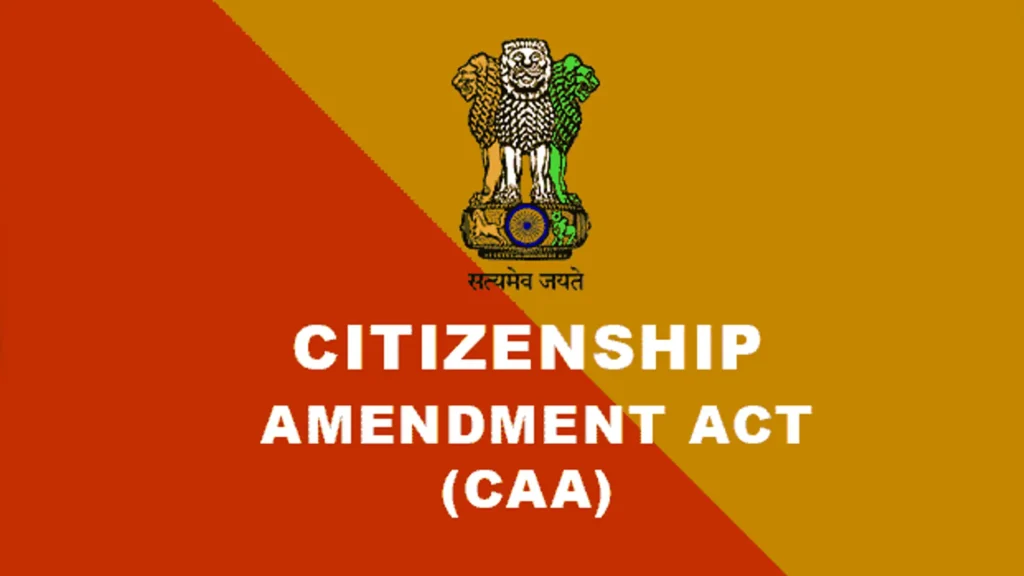
The Narendra Modi government has issued the notification for the Citizenship Amendment Act in the country. This significant decision comes just before the looming Lok Sabha elections. Upon the implementation of the CAA, Hindus and Sikhs (non-Muslims) arriving from Pakistan, Afghanistan, and Bangladesh will now be granted citizenship without the need for documents. The CAA was passed in both houses of Parliament in December 2019 and later received the President’s approval. However, protests against it erupted in many parts of the country, preventing its implementation until now. On the evening of March 11, the government issued its notification, raising questions about the changes the CAA will ultimately bring about.
What is the CAA?
The Citizenship Amendment Act (CAA) aims to safeguard individuals who have sought refuge in India due to religious persecution. It provides them with protection against actions related to illegal migration. The CAA simplifies citizenship rules for immigrants belonging to Hindu, Sikh, Buddhist, Jain, Parsi, and Christian faiths from Afghanistan, Bangladesh, and Pakistan. Previously, a person had to reside in India for at least 11 years to be eligible for Indian citizenship. However, this requirement has been relaxed, reducing the residency duration from one year to six years. In simpler terms, the CAA has made it easier to grant citizenship to non-Muslim immigrants from India’s neighboring countries: Pakistan, Afghanistan, and Bangladesh.
What impact will the implementation of the Citizenship Amendment Act CAA have?
After the issuance of the CAA rules, the Indian government will commence granting Indian citizenship to persecuted non-Muslim immigrants (Hindu, Sikh, Jain, Buddhist, Parsi, and Christian) from Bangladesh, Afghanistan, and Pakistan who arrived in India by December 31, 2014. The government has expressed that the whole process will be conducted online, and an online portal has been arranged for this purpose for seamless execution. Those arriving from abroad will require to register, disclosing their entry date into India. Subsequently, a necessary investigation will be conducted, after which citizenship will be granted to eligible candidates.

Why is the opposition questioning the CAA?
The country’s major opposition parties have continued to raise questions about the regulations of the CAA. Introduced by the central government in Parliament in 2019, it was argued that this law is discriminatory, specifically targeting Muslims, who constitute about 15 percent of the country’s population. However, the government argues that since Pakistan, Afghanistan, and Bangladesh are Muslim-majority Islamic republics, Muslims there cannot be considered persecuted minorities. Nonetheless, the government assures that the applications of other communities will be reviewed on a case-by-case basis.
To apply for citizenship, how can immigrants proceed?
The Ministry of Home Affairs has made it clear that the entire process for citizenship under the CAA will be conducted online. They have prepared a portal for the convenience of applicants. Applicants will need to provide information about when they entered India without being asked for any documents during this process.
Who are illegal immigrants?
Illegal immigrants, as characterized by the Citizenship Act of 1955, are people who cannot acquire Indian citizenship and this designation applies to those who enter India without valid travel documents like passports and visas, as well as those who stay in the country beyond the duration specified in their valid documents.
What provisions are there for illegal immigrants?
Illegal immigrants may confront detention in jail or deportation back to their nation under the Foreigners Act, 1946, and the Passport (Entry into India) Act, 1920. However, the central government has revised the laws to provide exemptions to Hindus, Sikhs, Buddhists, Jains, Parsis, and Christians coming from Afghanistan, Bangladesh, and Pakistan. This means that people belonging to these religions, even if residing in India without valid documents, cannot be subjected to detention or deportation. This exemption applies to those who arrived in India on or before December 31, 2014.





